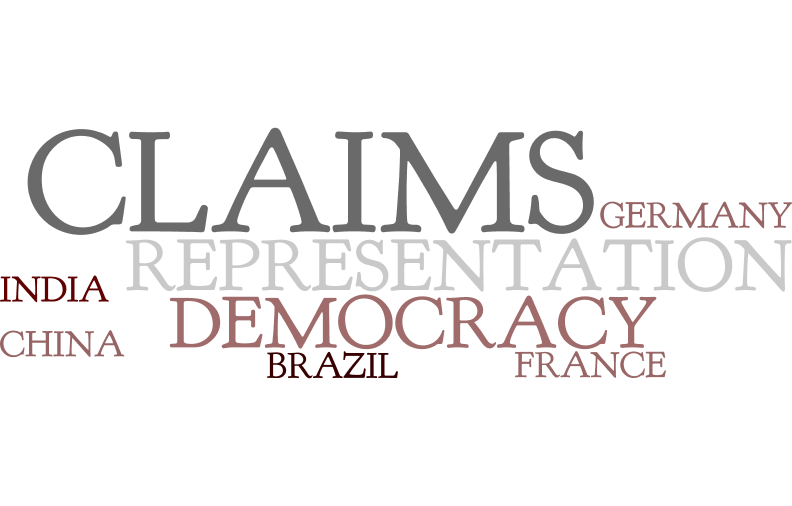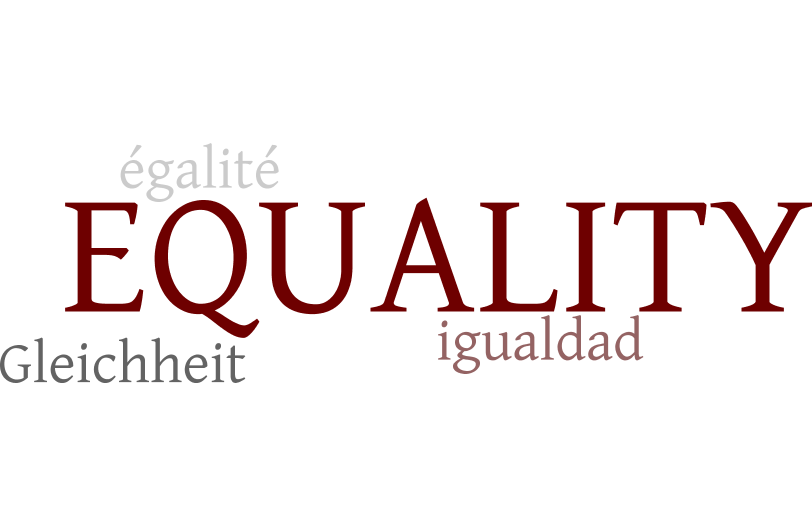Research Cluster
Comparative Democracy
|
Description Method: The underlying theoretical approach in this research field is decidedly empirical and analytical and characterized by a marked interest in questions related to qualitative and quantitative methods. Participating Professors |
| Projects (Selection) |
|
 |
German Longitudinal Election Study Principal Investigator: Prof. Dr. Sigrid Roßteutscher |
|
The Nature of Political Representation in Times of Dealigment (NAPRE) Principal Investigator: Prof. Dr. Thomas Zittel (in cooperation with Prof. Rosie Campbell, King’s College London und Prof. Tom Louwerse, Leiden University) |
|
 |
(New) Political Representative Claims: A Global View (France, Germany, Brazil, India, China) Principal Investigator: Prof. Dr. Brigitte Geißel (in cooperation with Prof. Yves Sintomer, Prof. Dr. Thomas Heberer, Prof. Stéphanie Tawa Lama-Rewal) |
 |
Principal Investigator: Prof. Dr. Heike Holbig |
 |
Inequality and Direct Democracy in Europe Principal Investigator: Prof. Dr. Brigitte Geißel |
 |
Principal Investigator: Dr. Philipp Erbentraut |
|
Bieber, Ina & Roßteutscher, Sigrid & Scherer, Philipp. 2018. Die Metamorphosen der AfD-Wählerschaft: Von einer euroskeptischen Protestpartei zu einer (r)echten Alternative?, Politische Vierteljahresschrift 59(3): 433-461. Borchert, Jens. 2011. Individual Ambition and Institutional Opportunity: A Conceptual Approach to Political Careers in Multi-level Systems. Regional & Federal Studies 21: 117-140. Borchert, Jens. 2003. Die Professionalisierung der Politik. Zur Notwendigkeit eines Ärgernisses. Frankfurt: Campus. Elff, Martin & Roßteutscher, Sigrid. 2018. Social Cleavages and Electoral Behaviour in Long-Term Perspective: Alignment without Mobilisation? German Politics 26(1): 12-34. Freitag, Markus & Traunmüller, Richard. 2009. Spheres of Trust. An Empirical Analysis of the Foundations of Particularised and Generalised Trust. European Journal of Political Research 48(6): 782–803. Geissel, Brigitte & Newton, Ken. 2012. Evaluating Democratic Innovations - Curing the Democratic Malaise? London und New York: Routledge. Gherghina, Sergiu. 2014. Shaping Parties’ Legitimacy: Internal Regulations and Membership Organizations in Post‐Communist Europe. International Political Science Review 35(3): 291-306. Gschwend, Thomas & Zittel, Thomas. 2018. Who brings home the pork? Parties and the role of localness in committee assignments in mixed-member proportional systems. Party Politics Party Politics 24(5): 488-500. Holbig, Heike. 2018. Protecting the Weak in East Asia: Framing, Mobilisation, and Institutionalisation. With I. Amelung, M. Bälz, M. Schumann, and C. Storz. London & New York: Routledge. Holbig, Heike. 2018. Whose New Normal? Framing the Economic Slowdown under Xi Jinping. Journal of Chinese Political Science 23(3): 341-363. Schneider, Carsten Q. & Wagemann, Claudius. 2012. Set-Theoretic Methods for the Social Sciences. A Guide for Qualitative Comparative Analysis and Fuzzy Sets in Social Science. Cambridge: Cambridge University Press. Traunmüller, Richard, Murr, Andreas & Gill, Jeff. 2015. Modeling Latent Information in Voting Data with Dirichlet Process Priors. Political Analysis 23(1): 1-20. Wagemann, Claudius. 2012. Breakdown and Change of Private Interest Governments. London: Routledge. Zittel, Thomas & Fuchs, Dieter. Eds. 2007. Participatory Democracy and Participation. Can Participatory Engineering bring Citizens Back In? London und New York, NY: Routledge. |
|
|
SSCI-Citations November 2018: 682 (97) |
|
|
The members of this Research Cluster publish in nationally and internationally renowned journals such as American Behavioral Scientist, Comparative Political Studies, Comparative Politics, Democratization, Electoral Studies, European Journal of Political Research, Journal of Contemporary China, Journal of European Public Policy, Parliamentary Affairs, Party Politics, Political Analysis, Political Studies, Political Research Quarterly, Politische Vierteljahresschrift, West European Politics, and others. The books written by the members of this Research Cluster are released by nationally and internationally renowned publishers such as Cambridge University Press, Campus, Oxford University Press, Nomos, Routledge, Springer VS and others. |





